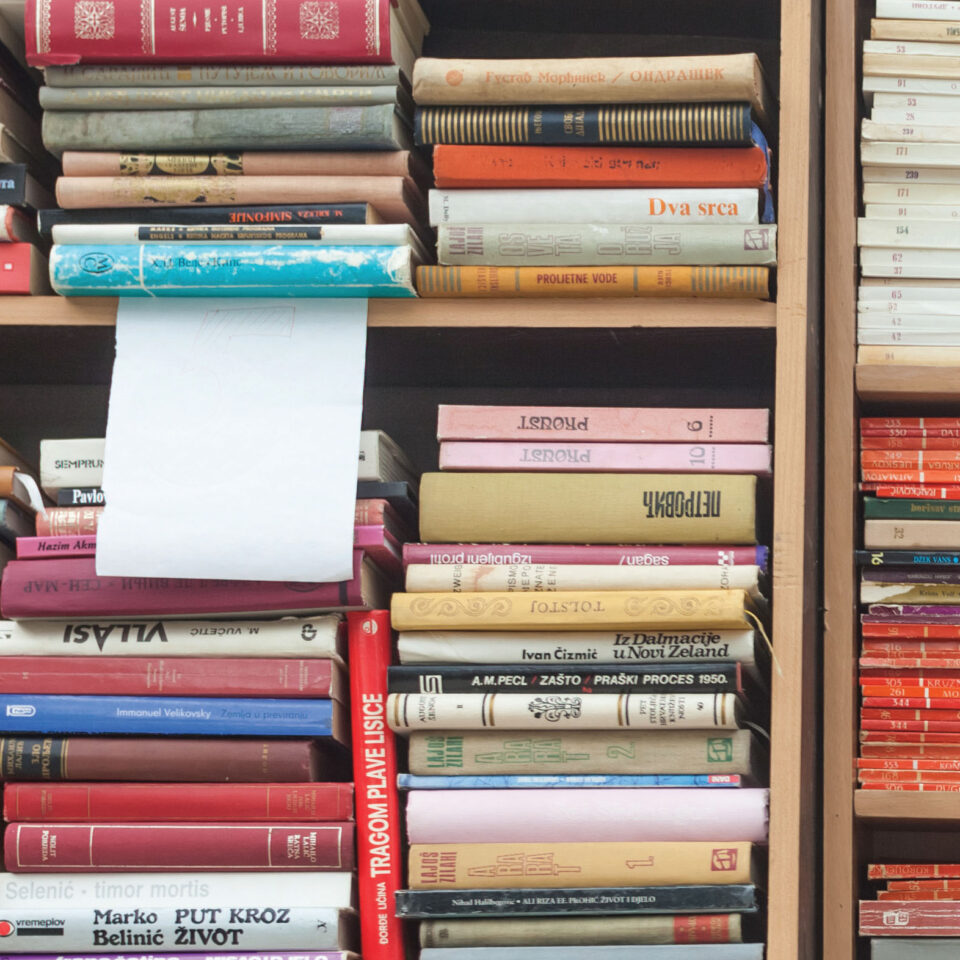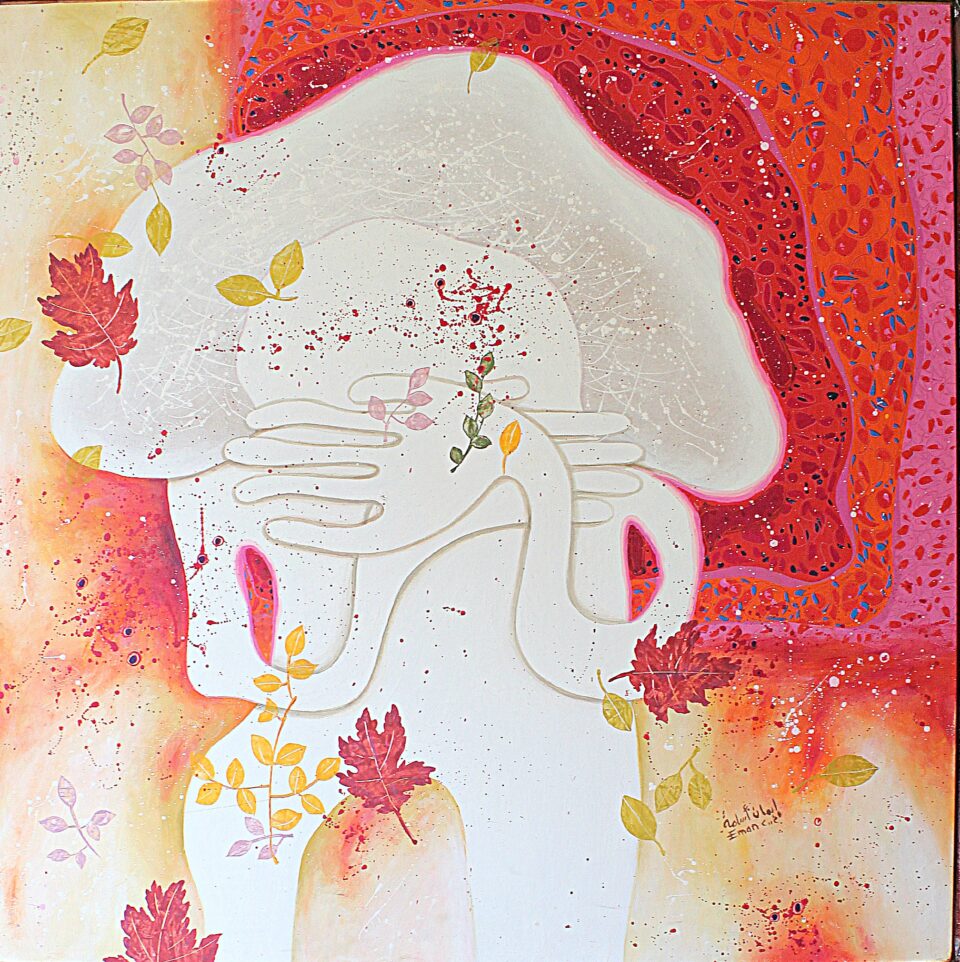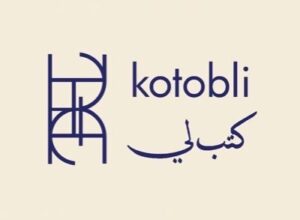So, you finished writing your first book, and you’re happy with it. Your spellcheck tool tells you that it’s perfect. Your mother and best friends read it and they love it—like they have the choice not to. You start searching for publishers that might be interested in your book. You pitch your work and in the blink of an eye, you’re starting on an action-packed adventure to get your words out there.
The question is: Do you really think you are ready to publish your book?
Think again, because simply put, you might not be ready to embark on such a journey.
As an active player in the literary business in Egypt nowadays, it became inevitable that we here at Rowayat plunge in and start exploring one of its mysteries: The complex world of the publishing industry. It is a territory of broken rules and ambiguous standards, where it’s normal to witness potential and talented writers have their dream of getting published turn into a nightmare. But, chin up; it’s all right, bad things happen to good people all the time.

The Way to Go
There are two ways to get published: There is the traditional way, whereby an author’s book is picked up by a publisher and the author is offered a contract. In this case, the publisher buys the rights to publish the book, handles the editing process, printing, publishing, marketing, and the book distribution. In other words, they do all the work; in return, the author is paid a percentage of the sales revenue (author’s royalties). The royalties in Egypt are usually approximately ten percent of the total revenue.
The second, rapidly growing alternative is self-publishing. In this case, the author invests and pays to print, produce, market, store, and distribute the book. The author keeps the book rights and receives one hundred percent of the profit.
Things in Egypt, however, are a little different. There are no fixed self-publishing agreement standards, it depends on the contract between the publisher and the author, as well as their respective roles. For example, in some cases, the publisher might help with marketing and distribution. Falling under the umbrella of self-publishing, there exists another form of publishing, known as vanity publishing. Here, the author pays a publisher to produce, promote, and distribute the book.
It is worth mentioning that getting self-published does not necessarily mean that the manuscript was not well-written and hence rejected. Some writers decide to self-publish because they need their book out on the market by a specific date that doesn’t suit the publisher’s schedule, or as a result of the publisher’s limited budget.
Even though these terms and definitions might seem clear, in the real world, they are not. Unfortunately, due to the lack of standardization in the field of publishing in general and self-publishing in particular, authors and publishers have different expectations, which eventually lead to negative results. Moreover, the author/publisher relationship is damaged, and consequently, disappointment and mistrust end up replacing respect and professionalism.
Writer AK[1]At the request of our interviewees, writers’ full names were withheld. explains, “I paid EGP20,000 for my book to get published and the agreement was to share the revenue equally. The publisher was a very nice person, but very unprofessional. My book didn’t go through the process of professional editing and proofreading, as I was told that it would cost too much. So, editing was done in a very casual manner during meetings with the publisher. I handled the distribution and the marketing myself as there wasn’t even a list for distribution; the publisher only arranged the first book-signing. The book was a success, yet it didn’t sell a lot of copies, because no one could follow up with the bookstores when they needed more copies. And it’s simply not my job to do that. The experience was painful and I don’t think I would ever publish in Egypt again.”
SA, another emerging writer, regretfully tells us her story. “My publisher was so excited about my book, which made me happy and eager to start this journey. The publishing house was in a very unfamiliar and distant district, so when I suggested meeting out of the office, the publisher’s preference was always to meet at McDonald’s. I paid EGP5,000 for publishing my poetry book and another EGP5,000 for a short novel. The actual cost for publishing the novel was EGP10,000, but we agreed to split the costs and consequently split the revenue. I went through a horribly long process of unprofessionalism. My book wasn’t edited, so my sister helped me with editing and proofreading. The layout, font, and design were done badly. I was promised to have it published and distributed by the beginning of the Cairo International Book Fair, which didn’t happen. And even the book-signing event was not well-prepared, and the publisher did not attend. And both books were distributed poorly; I rarely see them in bookstores. I often doubt that a thousand copies were even printed.”
Another sad story is that of AS, also an emerging writer, who opted to take the risk and to publish his novel at the age of twenty-one. “I didn’t even see all the copies of my book printed, and I was treated very unprofessionally by the publisher. And because I didn’t see my book distributed anywhere, I had to re-print it myself in a print house,” he says.
According to international self-publishing standards, the author should always get editing services; receive a hundred percent of the total profit as well as a guarantee that his or her books will be actually printed. When it comes to distribution and marketing, however, it depends on the agreement and the market conditions.
Penetrating the market is difficult, and there is a slew of talented and aspiring writers out there. With an aim to help these emerging writers, the Rowayat team went on a mission to unravel a few survival tricks, and to pass on some words of wisdom.
Before You Publish
First of all, don’t let the stories we just told you demotivate you. Before deciding which way to go and investing a large amount of money, take a deep breath and just wait. What did your creation turn out to be? Is it a novel, a collection of poems or short stories, or even a non-fiction book? Regardless of what it turns out to be, you should know that you have just planted the seed; now let it grow.
In a world where instant gratification is the norm, where movies, songs, books, friends are all available at the click of a button, you—on the contrary—should seek delayed gratification. And that is difficult. However, your book needs to develop.
Figure out exactly which genre it fits into; how it’s similar or different to other books of the same genre; what is its structure or timeline; is it a story of a person(s) or a place? Where does it begin and end? Who are the characters? The more you think about every aspect of the book, the better it will be. As much as you want to share your work with the world, you have to be patient, until you have thought everything through.
In her bestselling book on writing, Bird by Bird, Anne Lamott tells her writing class students, “the problem that comes over and over again is that these people want to be published. They kind of want to write, but they really want to be published. You’ll never get to where you want to be that way, I tell them. There is a door we all want to walk through, and writing can help you find it and open it. Writing can give you what having a baby can give you: it can get you to start paying attention, can help you soften, can wake you up. But publishing won’t do any of those things; you will never get it that way.”
So before taking any further steps, you should answer this question honestly: What is your goal?
If your goal is to be a writer—and we are hoping that it is—then you should know that it takes a lot of hard work to produce a well-written manuscript ready for publishing. Regardless whether you opt to go for traditional or self-publishing, you have to go to great lengths to ensure that your work is good. You do not want to end up publishing a mere first draft, which is bound to pave the way for readers to correct you.
The Power of Editing
The publishing process includes several phases including content development, editing, and proofreading. The publisher is expected to provide these services even in case of self-publishing.
However, many Egyptian professionals tend to forget the concept of editing, particularly those who work in languages other than Arabic. But, who’s to blame? According to Mostafa el-Sheikh, General Manager of Afaq Books, a few publishers ignore these essential phases and accordingly corrupt the industry and use it purely as a money-making method. On the other hand, some writers choose to depend on their own abilities, or the work of their own editors and refuse to take a second opinion from the publisher’s editing team.
Writers have to search for a professional editor, not a friend who is fluent in English. Hire someone to read and assess your manuscript, then work together on developing the plot, the structure, and the characters. A professional editor should help you develop or improve your writing style and word choice according to your specific genre and audience, in addition to controlling the length of your story and tightening it up.
Then cut, trim, and polish.
Your sentences should be immaculately structured and free of any spelling, punctuation, or grammar mistakes. According to author C.K.Webb, “edit your manuscript until your fingers bleed and you have memorized every last word. Then, when you are certain you are on the verge of insanity…edit one more time!”
You must know that having an editor does not mean losing your own voice, regardless of how major his or her suggestions are. Your work should always reflect who you are, so never compromise and do not give up on yourself. However, this will not be an easy ride. It will take time, dedication, discipline, and lots of arduous work. This process involves grueling working hours, daily practice, reading, writing, and rewriting, until you are sure you have a manuscript to be proud of; one that is bound to hook and appease literary agents, publishers, and most importantly readers, from your very first sentence.
According to Lamott, “I think my students believe that when a published writer finishes something, she crosses the last ‘t,’ pushes back from the desk, yawns, stretches, and smiles. I don’t know anyone who has ever done this, not even once. What happens instead is that you’ve gone over and over something so many times, and you’ve weeded and pruned and rewritten, and the person who read your work for you has given you great suggestions that you have mostly taken—and then finally something inside you just says it’s time to get on to the next thing.”
Now what comes next, you ask? Hunting for an agent or a publisher. While searching, be aware of the publisher’s reputation, level of professionalism, integrity, and work history. Research, research, and research. Investigate and ask other writers who might have gone through a similar experience. Hold on to your goals and rights when negotiating a deal. And keep in mind that being an emerging and determined writer does not mean selling your soul to the devil.
Challenges of a Publisher
Writers should know that they are not the only ones with challenges to face; publishers have their own challenges that literally threaten the whole industry. “The problem of distribution is something to begin with. As every bookstore has its own standards and goals, not all books are accepted in all bookstores. Some book fairs follow a system of censorship and therefore ban certain books from being sold. Besides, there are difficulties regarding distribution outside Cairo, and the relationship between publishers and newspaper distribution agencies has some serious flaws. So in the end, every publisher depends on his own network for distribution,” explains el-Sheikh. Moving on to the bigger challenges and risks, el-Sheikh reveals that “the economy doesn’t encourage people to buy books anymore; the habit of reading is fading, which also threatens our culture and social development. People depend on the Internet as a main source of information and hard copy dictionaries and encyclopedias are becoming extinct. And many believe that printed books will one day cease to exist.”
Pitfalls to Avoid
Regardless of the route you opted to follow—the traditional or self-publishing track—you need to be aware of several things: Your publisher must grant your book an ISBN (International Standard Book Number), which is a thirteen-digit number used for the identification of books. An ISBN is unique to every book and is crucial to have. It is the best way for readers or bookstores to find the exact edition of your book. A single ISBN costs around $125, and can be used anywhere in the world.
There should always be a publishing agreement between the author and the publishing house, clarifying every single clause and detail, including the publishing rights, copyright of the work, author’s warranties, delivery dates of the manuscript, the period that the publisher agrees to publish the book, the date the book will be published and distributed, and the royalties. Moreover, it should also include contingency clauses in case the content is changed. For example, should the publisher revise and reprint, or decline to publish the work, and lastly, how the agreement can be terminated if necessary.
El-Sheikh advises young and emerging writers to remain patient and to take all necessary time to ensure that they have a good manuscript. And as for cooperating with a publishing house, one must sign a thorough contract and verify that the publisher is registered with the EPA. This will garner a writer the right to complain in case of disagreement or fraud.
To overcome such problems, he believes there’s a need for a grassroots solution via a national project. We need to launch a project that will revive the culture of reading and storytelling. Libraries should exist in homes again and children should grow up with books around them. Reading is not a luxury; it enriches our culture and brings up generations. According to el-Sheikh, the Egyptian Publishers Association (EPA) must also play an active role in solving this problem. It needs to modify and alter some rules and to maximize the penalties for transgressions. “We need to be attentive to the problems of copyrights, publishing, and translation rights, as well as the publishing process’ regulations and the relationship between authors and publishers.”
References
| ↑1 | At the request of our interviewees, writers’ full names were withheld. |
|---|








